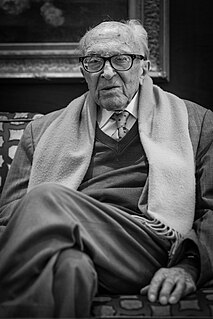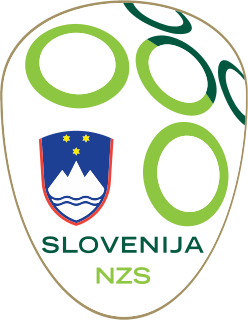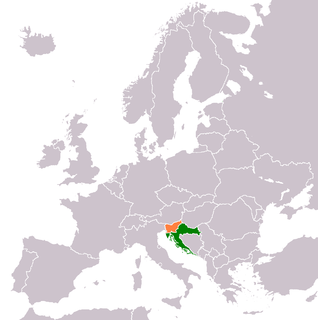
Maribor is the second-largest city in Slovenia and the largest city of the traditional region of Lower Styria. It is also the seat of the City Municipality of Maribor, the seat of the Drava statistical region and the Eastern Slovenia region. Maribor is also the economic, administrative, educational, and cultural centre of eastern Slovenia.

TIGR, an abbreviation for Trst, Istra, Gorica, and Reka, full name Revolutionary Organization of the Julian March T.I.G.R., was a militant anti-fascist and insurgent organization established as a response to the Fascist Italianization of the Slovene and Croat people on part of the former Austro-Hungarian territories that became part of Italy after the First World War, and were known at the time as the Julian March. It is considered one of the first anti-fascist resistance movements in Europe. It was active between 1927 and 1941.

Carinthia, also Slovene Carinthia or Slovenian Carinthia, is a traditional region in northern Slovenia. The term refers to the small southeasternmost area of the former Duchy of Carinthia, which after World War I was allocated to the State of Slovenes, Croats and Serbs according to the 1919 Treaty of Saint-Germain. It has no distinct centre, but a local centre in each of the three central river valleys among the heavily forested mountains.

The Slovenian Democratic Party, formerly the Social Democratic Party of Slovenia, is a conservative political party in Slovenia. It has been described as nationalist and right-wing populist, encompassing both national and social conservatism. Led by the current Prime Minister of Slovenia Janez Janša, the SDS is a member of the European People's Party (EPP), Centrist Democrat International and International Democrat Union.

The Academic and Research Network of Slovenia is a public institute in Slovenia, established in May 1992. Its main task is development, operation and management of the communication and information network for education and research. ARNES also operates the Slovenian Internet Exchange. The members of its management board are appointed by the Government of Slovenia.

Boris Pahor is a Slovene novelist living in Italy who is best known for his heartfelt descriptions of life as a member of the Slovenian minority in pre-Second World War increasingly fascist Italy as well as a Nazi concentration camp survivor. In his novel Necropolis he visits the Natzweiler-Struthof camp twenty years after his relocation to Dachau. Following Dachau, he was relocated three more times: to Mittelbau-Dora, Harzungen and finally to Bergen-Belsen, which was liberated on 15 April 1945.

The Slovenia national football team represents Slovenia in men's international football and is controlled by the Football Association of Slovenia, the governing body for football in Slovenia. The squad is under the global jurisdiction of FIFA and is governed in Europe by UEFA. It competes in the three major professional tournaments available to European nations: the FIFA World Cup, UEFA Nations League and the UEFA European Championship. Slovenia played its first official match in 1992, one year after the country gained independence from Yugoslavia. The majority of Slovenia's home matches are played at Stožice Stadium in Ljubljana.

Ivan Janša, baptized and best known as Janez Janša, is a Slovenian politician who is currently serving as prime minister of Slovenia, a position he had previously also held from 2004 to 2008, and from 2012 to 2013. Since 1993, Janša has led the Slovenian Democratic Party, which has emerged as the pre-eminent Slovenian conservative party.

The Battle of Dražgoše was a Second World War battle between the Slovene Partisans and Nazi Germany armed forces, which took place between January 9 and January 11, 1942, in the village of Dražgoše in German-annexed Slovenia. This battle was the first direct confrontation between the two. It ended with brutal reprisals of German forces against the villagers and the destruction of the village.
The Slovenian Intelligence and Security Agency is the main civilian intelligence service in the Republic of Slovenia and as a government agency is subordinated directly to the Prime Minister of Slovenia. The mission of SOVA as the central intelligence and security service in the Republic of Slovenia is to provide national security. The agency's headquarters are located at Stegne Street in Dravlje, northwest of Ljubljana's centre.
The use of the Internet in Slovenia is widespread. According to official polls in the first quarter of 2008, 58% of citizens between the ages 10 and 74 were internet users, which is above Europe's average. In the same period, 59% of households and 97% of companies with 10 or more employed had internet access. In 2011, 73% of households had internet access, and 67% of households had broadband. As of 2011, 29% of Slovenians had never used the internet.
The Erased is the name used in the media for a group of people in Slovenia that remained without a legal status after the declaration of the country's independence in 1991.

Following the breakup of Yugoslavia in 1991, Slovenia and Croatia became independent countries. As the border between the countries had not been determined in detail prior to independence, several parts of the border were disputed, both on land and at the sea, namely in the Gulf of Piran.

The City Municipality of Ljubljana, also the City of Ljubljana is one of twelve city and metropolitan municipalities in Slovenia. Its seat is Ljubljana, the largest and capital city of Slovenia. As of December 2021, its mayor is Zoran Janković.
Civic List is a classical-liberal extra-parliamentary political party in Slovenia, led by Gregor Virant. LGV won 8.37% of the vote at the early 2011 Slovenian parliamentary election on 4 December 2011, thus gaining 8 seats in the National Assembly. After a quit of its deputy group by one of its deputies in April 2012, it has had 7 seats. Until April 2012 the party was named Gregor Virant's Civic List.
Let's Do It World is a global civic organization that started from Estonia, mobilizing people worldwide in joining local, national and regional clean-up events. Among other projects, it is the founder of World Cleanup Day, on which a network of 180 countries, with over 21.2 million participants took place in 2019.

Let's Clean Slovenia 2012 was a Slovenian environmental volunteer project organized by the environmental organization Ecologists Without Borders with the goal of joining 250,000 people on 24 March 2012 and cleaning municipal waste from illegal landfills in the country. Cleaning of scattered garbage in urban areas was also organized. The project, a continuation of the Let's Clean Slovenia in One Day! carried out two years before, was inspired by the Estonian campaign Let's Do It 2008 and organized within the frame of the World Cleanup 2012.

Let's Clean Slovenia in One Day! was a Slovenian environmental volunteer project organized by the environmental organization Ecologists Without Borders on 17 April 2010. Its goal was carrying out the largest environmental act in the history of Slovenia by joining 200,000 volunteers which would remove at least 20,000 tons of municipal waste from illegal landfills in the country. Cleaning of scattered garbage in urban areas was also organized. The project was inspired by the Estonian campaign Let's Do It 2008.

Tomaž Kavčič is a Slovenian football manager and former player. Kavčič was the manager of the Slovenian national team between 2017 and 2018, and Slovenian under-21 team for eight years between 2008 and 2014; he was also an assistant manager of the national team manager Srečko Katanec between 2016 and 2017. While playing for Gorica he scored his debut goal in the Slovenian PrvaLiga aged 38 years and 4 months, which is still a Slovenian record.
Events in the year 2018 in Slovenia.














